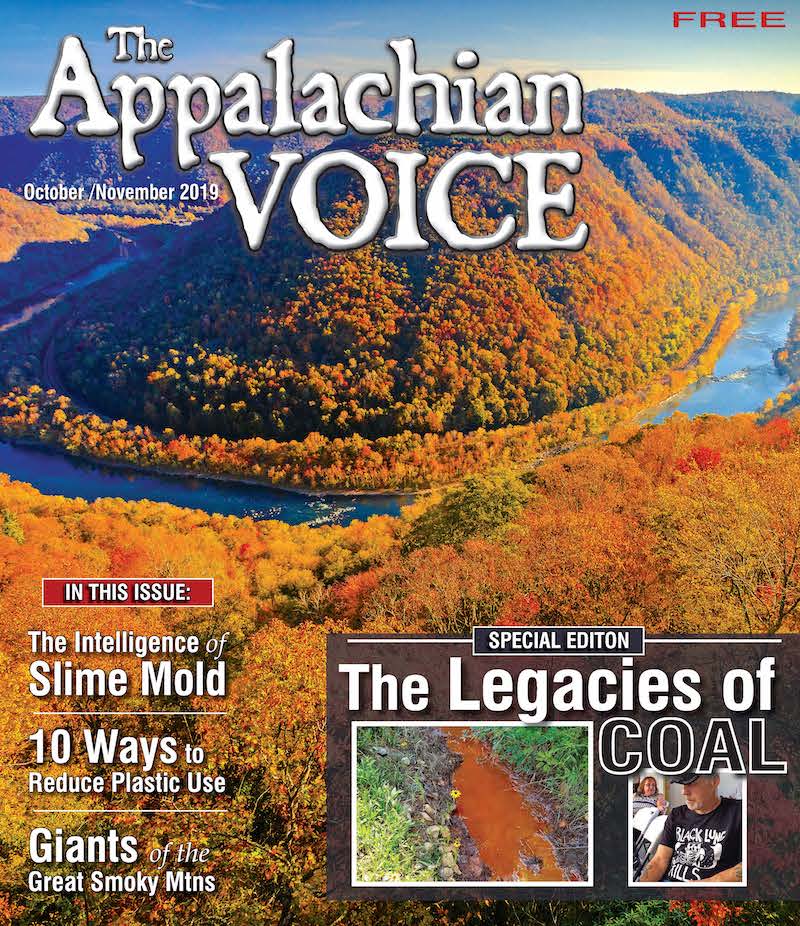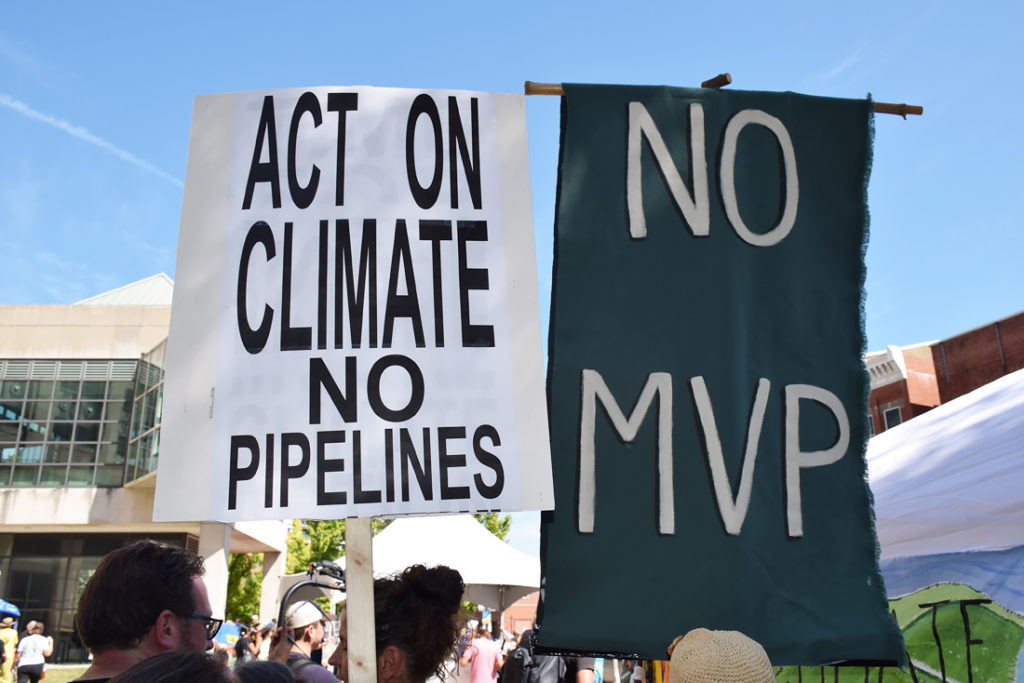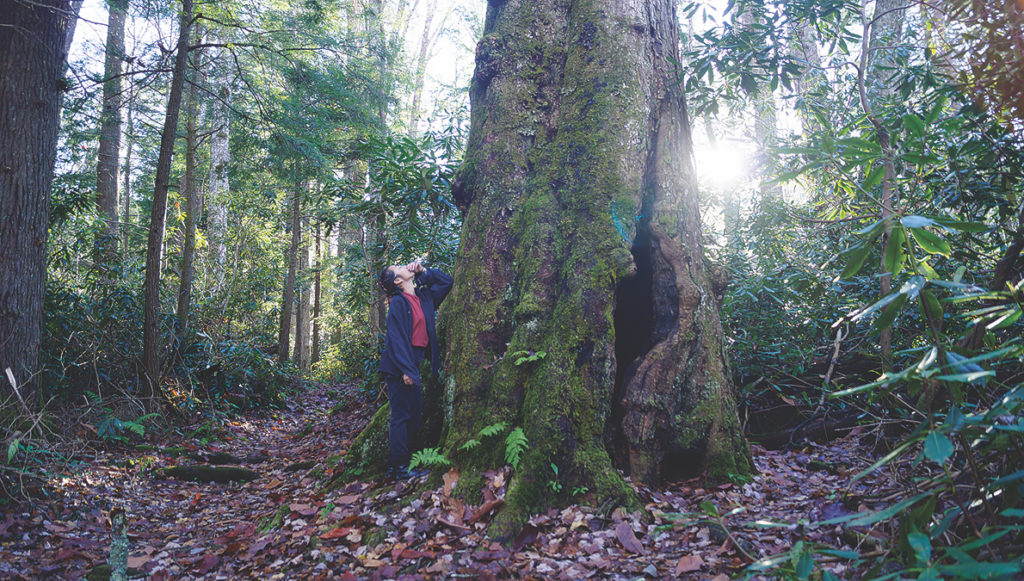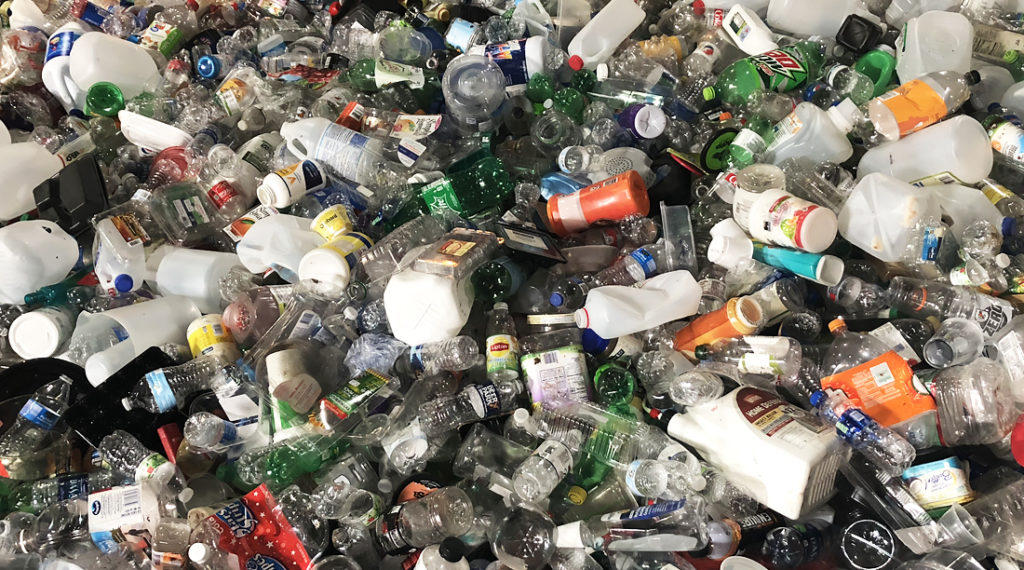October/November 2019
In this special edition of The Appalachian Voice, we dive into the challenges that coal is leaving behind for the land and people of Appalachia. These legacies include recent bankruptcies leaving workers in the dust, an overwhelming backlog of unreclaimed mines and abandoned mine lands, increasing rates of black lung disease and more.
We also share reflections on a play that explores an episode of racial violence in Knoxville that occurred in 1919. In our regular columns, we celebrate the marvels of slime mold, discuss ways to reduce plastic use and walk through old-growth forest in the Great Smoky Mountains.

The Legacies of Coal
As the Appalachian coal industry continues to decline, the scale of the impact it has had on the land, air, water and people of the region is becoming more apparent.
- Intro: The Legacies of Coal
- Reclamation 101
- Idle Lands
- The Unresolved Problem of Abandoned Mine Lands
- Workers Push for Pay After Bankruptcy
- When Coal Companies Go Bankrupt, Who Cleans Up the Mess?
- A Pilot Program’s Uncertain Record
- The Black Lung Association Responds to the Deadly Disease’s Rise
- Bankruptcies Highlight Concerns with Black Lung Benefits Fund
Other Top Stories From October/November 2019
Play Bears Witness to Knoxville’s Red Summer, 100 Years Later
“Red Summer,” a performance by The Carpetbag Theatre, Inc., highlights an episode of racial violence in Knoxville, Tenn., that occurred after a Black man was falsely accused of murder in 1919.
Pipeline Developers Push Back Against Grassroots Resistance
Legal challenges continue to stall numerous pipelines as Mountain Valley developers continue to push forward on the MVP Southgate project. A tree-sit in Mountain Valley’s path reaches one year.
October/November 2019 - Columns
The Intelligence of Slime Mold
This brainless, single-celled organism is able to solve surprisingly complex puzzles and is even able to memorize and anticipate changes in its environment.
Pushing Back Against Plastics
Check out 10 ways to reduce your plastic footprint, and learn why the fight against plastic is connected to the petrochemical industry’s plans to expand in Appalachia.







